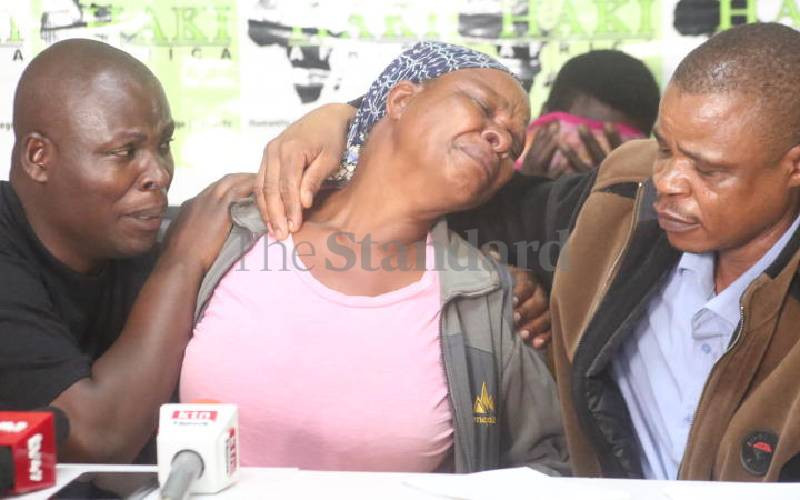×
The Standard e-Paper
Home To Bold Columnists

Joyce Moraa breaks down and is being consoled during an interview with The Standard on February 6th 2024. Her daughter Felister Nyambeki left for Saudi Arabia in 2021 as a migrant domestic worker, but since then she has never heard from her. [Collins Oduor, Standard]
A human rights lobby has issued a seven-day ultimatum to the government to bring back two women stuck in Saudi Arabia.